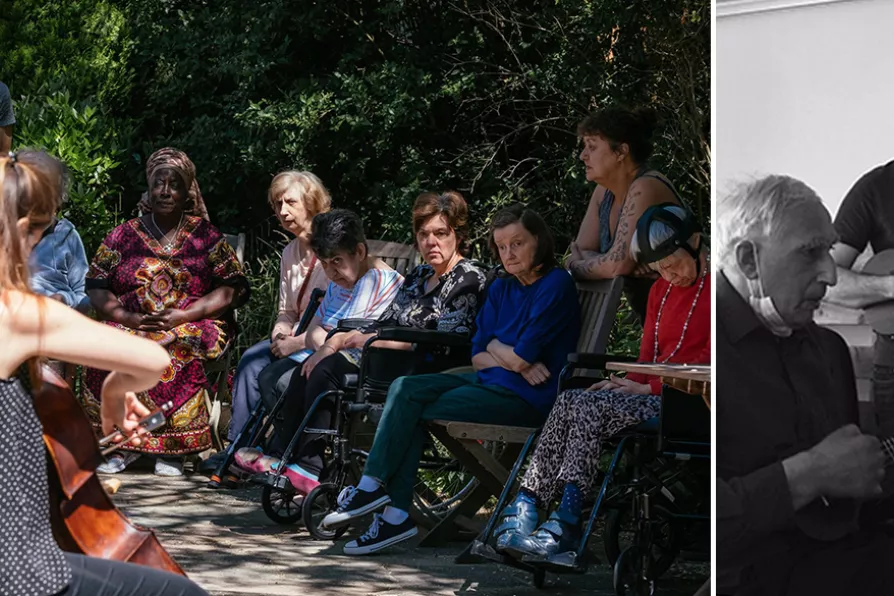TONY BURKE speaks to Gambian kora player SUNTOU SUSSO

 (L) A "Cuppa Concert" in north London; (R) Romaine Malan with a student from the "ignition" tuition programme
[Marianne Chua; OneWestminster]
(L) A "Cuppa Concert" in north London; (R) Romaine Malan with a student from the "ignition" tuition programme
[Marianne Chua; OneWestminster]
ROMAIN MALAN was all set for a conventional training in music, first in France and then at the Royal College of Music in London. But, in his final year, his mother became ill and the experience of playing to her as her Alzheimer’s progressed changed his enire approach to music.
The immense benefit, for both for musicians and listeners, of live music in a healthcare environment became the guiding light and, graduating from RCM he took a second degree in community arts at Goldsmiths. If the revelation was to play Bach to his mother as she was dying, the foundation for his World Music Orchestra project was laid by an extraordinary course for qualified artists who wish to work in community arts.
“I have always been deeply aware,” says Malan, “of the power of music in both healing and empowering people.”

CHRIS SEARLE speaks to Ethiopian vocalist SOFIA JERNBERG

ANN HENDERSON on the exciting programme planned for this summer’s festival in the Scottish capital












